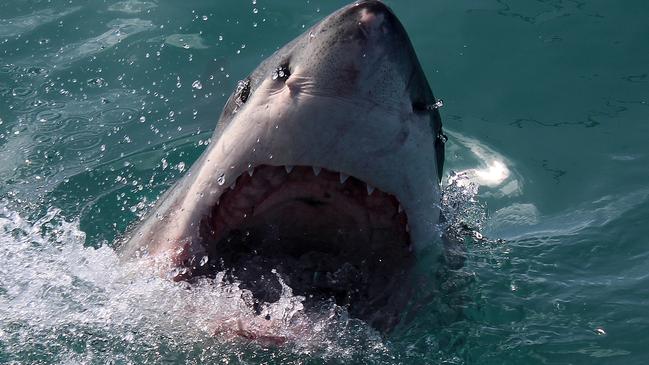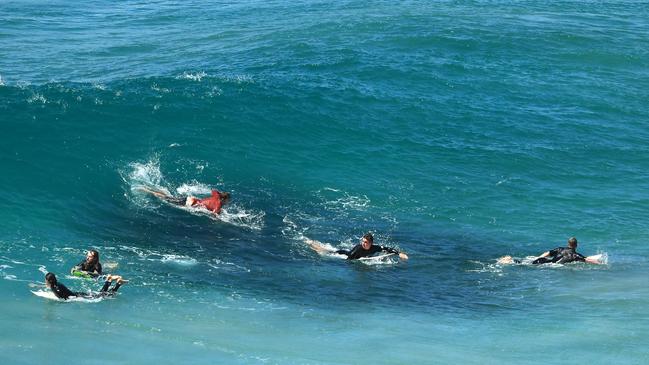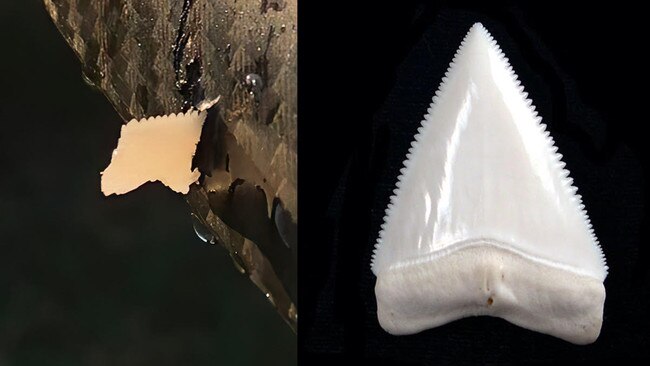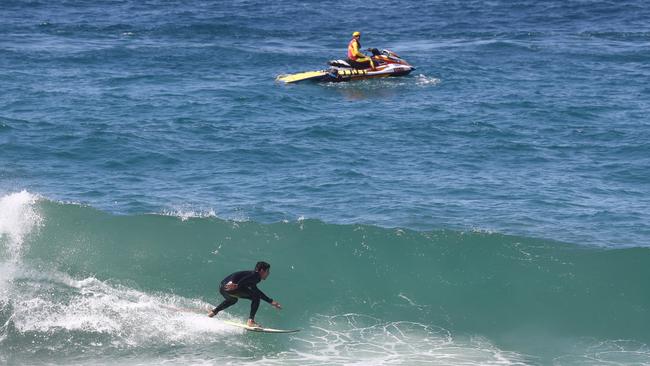Gold Coast shark expert Daryl McPhee warns school holiday beachgoers to avoid taking risks after string of close encounters
A Gold Coast shark expert has been stunned to see school holiday beachgoers frolicking among baitfish and warns it’s “like going into a pride of feeding lions and wandering with the zebras”.
Gold Coast
Don't miss out on the headlines from Gold Coast. Followed categories will be added to My News.
SWIMMERS and surfers hitting the water among schooling baitfish on the Gold Coast is “like going into a pride of feeding lions and wandering with the zebras”, says a shark expert.
Bond University’s Dr Daryl McPhee has issued a stark warning following a spate of alarming shark sightings and close encounters reported on the Coast and Tweed in recent days.
The mounting number of community reports follows the fatal mauling of Miami’s Nick Slater at Greenmount on June 8 and Tugun‘s Rob Pedretti near Kingscliff, NSW, on June 7.

Mr Slater’s tragic death marked the first fatal attack on city beaches in more than 60 years and came as the tourism industry struggles to cope with the global COVID-19 pandemic.
Dr McPhee said three recent shark encounters in which surfboards were reportedly bumped or bitten, all listed on community platform Dorsal Shark Reports, were probably driven by sheer curiosity – though sharks do sometimes engage in ‘bump and bite’ attacks.

On Monday morning, a three-metre bull shark was reportedly spotted darting under beachgoers at popular Snapper Rocks.
Dr McPhee was flabbergasted to see beachgoers frolicking next to or in baitfish balls on city beaches in recent days, or swimming at dawn and dusk, peak times for an attack.

“We are getting better at reporting sharks, with drones et cetera, but that said it is unusual to have the interactions we’ve had,” he said.
“One of the big issues is that there’s a lot of baitfish around and there’s still people swimming and surfing with baitfish.
HEROES SPEAK OUT ABOUT EFFORTS TO SAVE SHARK ATTACK VICTIM
“It’s like going into a pride of feeding lions and wandering with the zebras.
“Shark bites can occur anytime of day, but you do have a heightened risk at dawn and dusk.”
He was adamant beaches should remain open and the likelihood of another serious or fatal shark attack remained remote – particularly if beachgoers avoided risky scenarios.

“Absolutely we should keep beaches open. The risk of shark bite is still very low,” he said.
“Even during this period, many more surfers on the Gold Coast would have suffered other injuries not related to sharks.
“The Gold Coast economy is struggling with border closures and we need to do everything we can to keep economic activity going and leisure activities thriving along.”
Dr McPhee said despite “shark mania” sweeping the Coast, the animals were not specifically targeting humans.
HEARTFELT TRIBUTES FOR SHARK ATTACK VICTIM NICK SLATER
Sharks will eat almost anything, but surfboards and riders are not a preferred food source.
“Sharks eat a whole range of things that aren’t food. Plastics, cigarette butts – pretty much anything they can find. They’re not highly selective feeders,” Dr McPhee said.

“They’re after any potential prey they can find.”
Dr McPhee said it was not surprising to see the media explode with stories about sharks.
“Look, all the media is doing is reporting on something the public are absolutely fascinated in and want every single detail possible,” he said.
The associate professor of environmental science suggested beachgoers after “extra protection” should seek out scientifically tested deterrent devices, such as Ocean Guardian’s Shark Shield.


